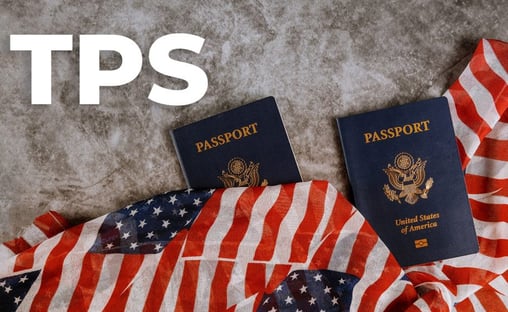Humanitarian Relief Visas


Asylee Status: Asylum is a protection granted to foreign nationals already in the United States or at the border who meet the international law definition of a “refugee.”
granted to individuals who are already in the US
applicant fits the requirements of living under threat of persecution
already present in the US or seeking admission at a port of entry
do not have to have legal immigration status to apply for protection
protected from being returned to his or her home country
authorized to work in the United States
may also be eligible for certain benefits, such as Medicaid or Refugee Medical Assistance.
may apply for a Social Security card
may request permission to travel overseas
can petition to bring family members to the United States
Two ways to apply for asylum in the US:
Affirmative Asylum: A person who is not in removal proceedings may affirmatively apply for asylum through U.S. Citizenship and Immigration Services (USCIS), a division of the Department of Homeland Security (DHS). If the USCIS asylum officer does not grant the asylum application and the applicant does not have a lawful immigration status, he or she is referred to the immigration court for removal proceedings, where he or she may renew the request for asylum through the defensive process and appear before an immigration judge.
Defensive Asylum: A person who is in removal proceedings may apply for asylum defensively by filing the application with an immigration judge at the Executive Office for Immigration Review (EOIR) in the Department of Justice. In other words, asylum is applied for “as a defense against removal from the U.S.”




Designated TPS Countries (2025)
NOTE: Temporary Protected Status does not automatically lead to a green card; however, it doesn't block the path to permanent residency. In some instances, TPS holders can obtain a green card through other established immigration programs, such as family-based sponsorship, employment-based sponsorship, or asylum, if they meet the specific requirements.
For Asylees and Refugees
Temporary Protected Status (TPS): applies to foreigners already in the US wishing to avoid going back to their homeland because of civil strife or upheaval due to environmental or natural disasters (such as hurricanes or earthquakes), an outbreak of disease, ongoing armed conflict (such as civil war), or other extraordinary and temporary conditions that have made it unsafe to return. An Immigration Judge (IJ) or the Board of Immigration Appeals (BIA) may grant TPS—order and approved applications go to USCIS.
TPS beneficiaries who are found preliminarily eligible upon initial review of their cases (prima facie eligible):
are nationals of certain countries (or parts of countries) ,
are individuals without nationality who last resided in designated country
may remain in the US for a limited period
cannot be detained by DHS on the basis of his or her immigration status
are not removable from the United States
can obtain an employment authorization document (EAD)
may be granted travel authorization
cannot be detained on basis of his or her immigration status in the US.
Refugee Status: To qualify for refugee status in the United States, you must meet the definition of a refugee above, plus:
granted to people who are still outside the US (cannot apply for refugee relief inside the United States; If already in the U.S., may be eligible to apply for asylum)
fits requirements regarding persecution
must be referred by the UN Refugee Agency (UNHCR) or a U.S. Embassy or must be a member of a specified group with special characteristics in certain countries. The embassy will provide assistance in gathering the required paperwork, completion of the application, and, if approved, relocation assistance
can be labeled admissible for legal entry into the US
must not be firmly resettled in another country. This is defined by whether or not the applicant has been offered resident status or citizenship in that country.
must not be an immediate relative of a U.S. citizen or a special immigrant (in this case, must apply for an immigrant visa instead).
Both asylum status and refugee status require strict compliance with processing requirements.
Unlike the criminal court system, there is no appointed counsel for asylum seekers or individuals in immigration court, even if they are unable to retain an attorney on their own. However, both asylum seekers and refugees are entitled to consult with and hire an attorney of their choosing.
For Undocumented Immigrants
U Visa: Immigrant victims of certain crimes who have been helpful in a criminal investigation or prosecution may qualify for a U visa. This immigration relief can lead to lawful permanent residence (a green card) and eventually to citizenship via naturalization.
Violence Against Women Act (VAWA): provides for an abused spouse or child of a U.S. citizen or lawful permanent resident (LPR) or an abused foreign parent of a U.S. citizen to self-petition for lawful status in the United States, receive employment authorization, and have the right to access public benefits. VAWA provides domestic violence survivors with the means that are essential to escaping violence and establishing safe, independent lives.
T Visa: Human trafficking survivors may be eligible for lawful status, employment authorization, and a potential path to permanent residence and naturalization. This group of victims is a unique population with diverse and resource-intensive needs.
For Victims of Crime


The U.S. government offers humanitarian assistance to individuals who seek shelter from oppression. The difference between asylee and refugee turns on where the person is located when making the application. Both asylees and refugees are considered persons who are subject to persecution because of their race, religion, nationality, political opinion, or membership in a particular social group (for example, women opposed to Feminine Genital Mutilation (FGM) who belong to an ethnic group that practices FGM). Additionally, to qualify for either asylum or refugee status, the applicant must demonstrate that their fear of persecution is well-founded and are of special humanitarian concern to the US
The United States offers immigration relief for survivors of domestic violence and other crimes, regardless of gender.
For Displaced Immigrants
Deferred Action for Childhood Arrivals (DACA): defers deportation proceedings for two years for qualified individuals who were brought to the United States when they were children and entered without inspection (EWI = unauthorized). The program provides work authorization. DACA can be renewed.
The USCIS is not accepting new DACA applications at this time.
The program doesn’t grant a path to citizenship, and even though recipients have deportation deferred, they still do not have lawful status.


